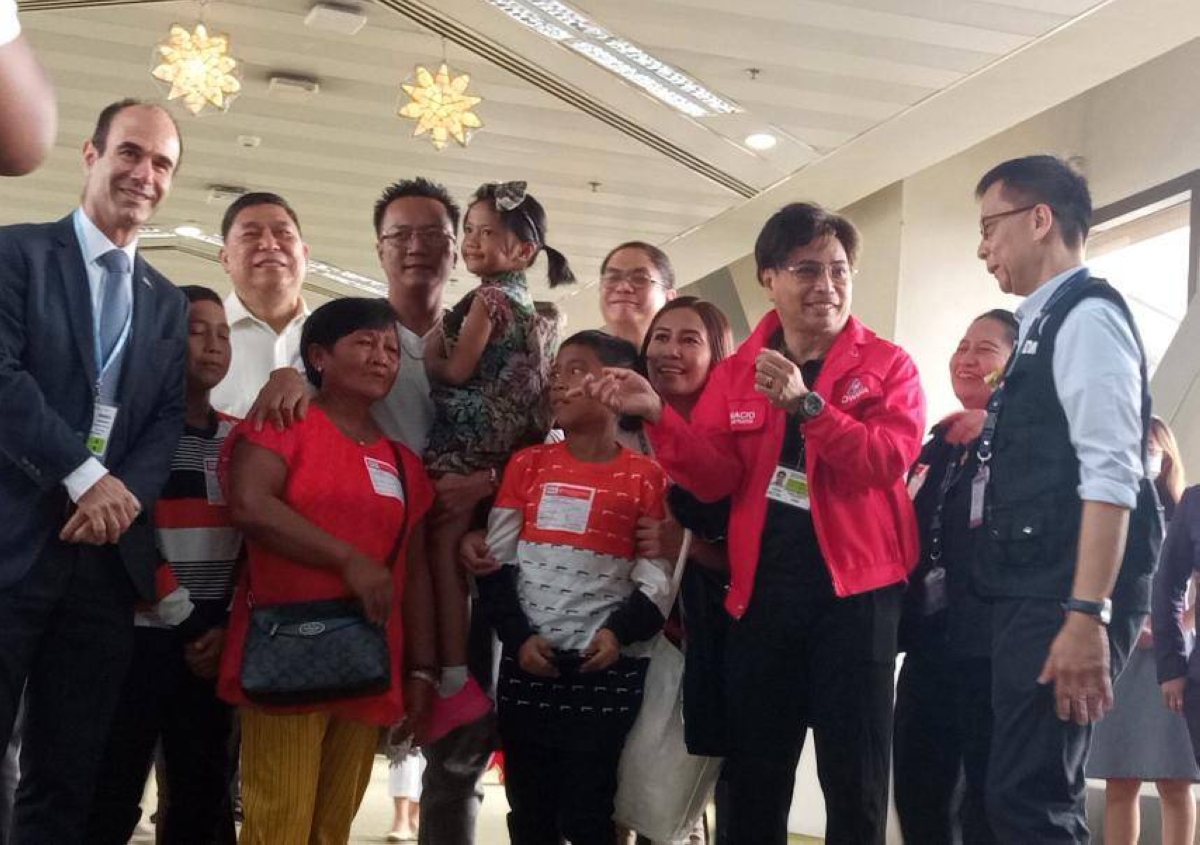MANILA, Philippines: Gelienor “Jimmy” Pacheco, a Filipino caregiver who was held captive by the Palestinian militant group Hamas in Israel, has finally returned home. On Monday, December 18, 2023, Pacheco’s plane landed at the Ninoy Aquino International Airport Terminal 1 at 11:02 a.m.
Pacheco’s arrival was met with heartfelt joy as his family and officials from the Department of Migrant Workers and the Overseas Workers Welfare Administration warmly welcomed him. This long-awaited reunion marked the end of a challenging ordeal that Pacheco had endured for months.
After being freed on November 24, Pacheco was provided with a temporary passport by the Philippine Embassy in Tel Aviv. This document allowed him to travel back to his home country, where he could finally find solace and support from his loved ones.
The captivity of Pacheco, along with others, serves as a somber reminder of the risks faced by overseas Filipino workers. These individuals often leave their families behind in search of better opportunities abroad, only to find themselves caught in dangerous situations.
The case of Pacheco highlights the importance of diplomatic efforts and cooperation between nations in ensuring the safety and well-being of their citizens abroad. The Philippine government, through the Department of Foreign Affairs and its embassy in Israel, played a crucial role in securing Pacheco’s release.
It is worth noting that cases like Pacheco’s are not isolated incidents. Many Filipino caregivers and migrant workers face various challenges while working overseas. These challenges range from labor exploitation to human rights abuses. The Philippine government has been actively working to address these issues and provide better protection for its citizens working abroad.
International laws and agreements, such as the United Nations Convention on the Rights of Migrant Workers and their Families, aim to protect the rights and welfare of migrant workers worldwide. However, the implementation and enforcement of these laws can vary from country to country.
For Filipino caregivers like Pacheco, understanding the local laws and customs of the countries they work in is crucial for their safety and well-being. It is important for them to be aware of their rights and seek assistance from their respective embassies or consulates if they encounter any issues.
Furthermore, it is essential for countries to strengthen their cooperation in addressing the challenges faced by migrant workers. This includes sharing information, coordinating efforts, and providing support to ensure the protection of their citizens abroad.
Pacheco’s safe return to the Philippines is a testament to the resilience and determination of Filipino migrant workers. It serves as a reminder of the sacrifices they make and the challenges they overcome in pursuit of a better future for themselves and their families.
As a nation, it is crucial that we continue to support and advocate for the rights and welfare of our fellow Filipinos working overseas. By doing so, we can contribute to a safer and more secure environment for all migrant workers.







